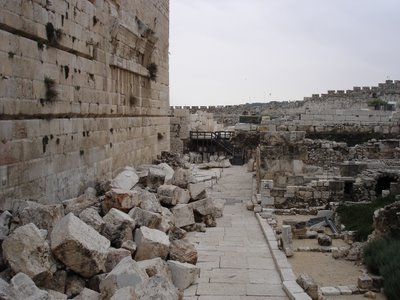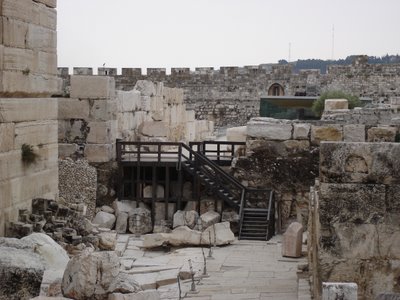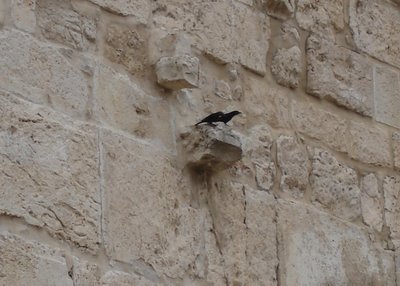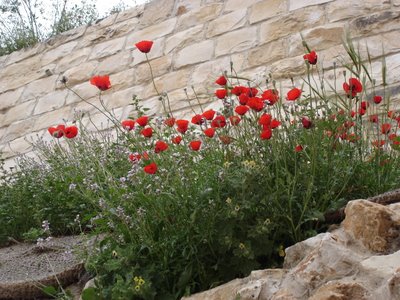Tisha be-Av
Recently I began reading Herman Wouk’s wonderful book, This Is My God. Published in 1959 and thirteen years in the making, it is an explanation of Judaism’s beliefs and practices written for a contemporary American audience. It is a delightful book, informing and explaining with warmth, humor, humility and scholarship.
This is the beginning of Wouk’s section on Tisha be-Av, the sad and somber fast day that Jews begin observing tonight:
You might call this day the Pearl Harbor of Jewry. The Babylonians on the Ninth of Ab, 586 b.c., broke into the Temple of Solomon and sacked it. Six hundred years later, on the same date, the Romans destroyed the Second Temple. This fatal coincidence linking the nation’s two greatest disasters has left an ineradicable scar on the memory of the Jews.
The section’s final paragraph takes on grim significance in light of current events:
Some have argued that, with the birth of modern Israel, mourning for the fall of Zion has become an anachronism. But the Jewish national memory is long. It is not likely that the grim date of the capture of Jerusalem and the ruin of two temples will be forgotten.
There is a spot in the Old City at the base of the Western Wall (not in the prayer area, but in the section that extends to the adjacent archaeological gardens) where the destruction that the Romans perpetrated can still be clearly seen. The huge stone blocks that Roman soldiers threw from the top of the Temple Mount still lie at the base of the wall in the cracks and craters that they created in the ancient sidewalk below. The marks of burning are still plain on many of them.
The first time I read Wouk’s description of Tisha be-Av, the thought occurred to me that if he were writing the book today, he might well have referred to Tisha be-Av as the 9/11 of Jewry. For me, these pictures strengthen the similarity.
The long view:
From closer up:
From closer up at another angle:
Yet Tisha be-Av, for all its sorrow, contains the seeds of hope. Here are Tristram’s grackles in a cleft in the wall:
Spring flowers among the ruins:
Since the final verse of the Book of Lamentations is far from hopeful, and since we prefer to end things on a positive note even on the saddest day of the Jewish year, we read the penultimate verse twice:
הֲשִׁיבֵנוּ, ה', אֵלֶיךָ וְנַשׁוּבָה; חַדֵּשׁ יָמֶינוּ כְּקֶדֶם.
Take us back, O Lord, to Yourself, and let us come back; renew our days as of old!
An easy fast to all who are fasting today, and a meaningful day to everyone.





No comments:
Post a Comment
Comments are moderated. If you're a spammer, don't waste your keystrokes. If you're a real, honest-to-goodness commenter, welcome!